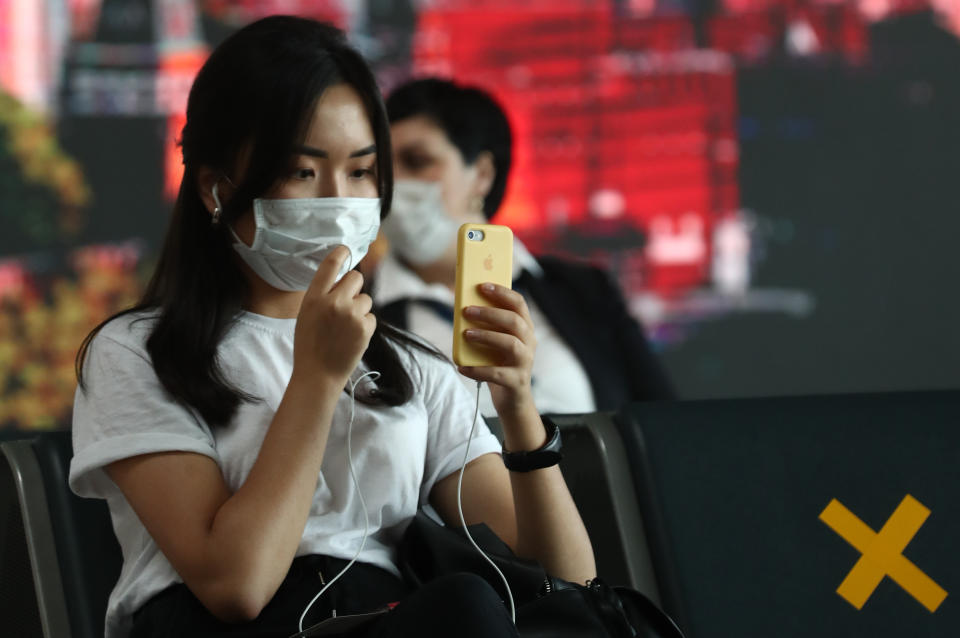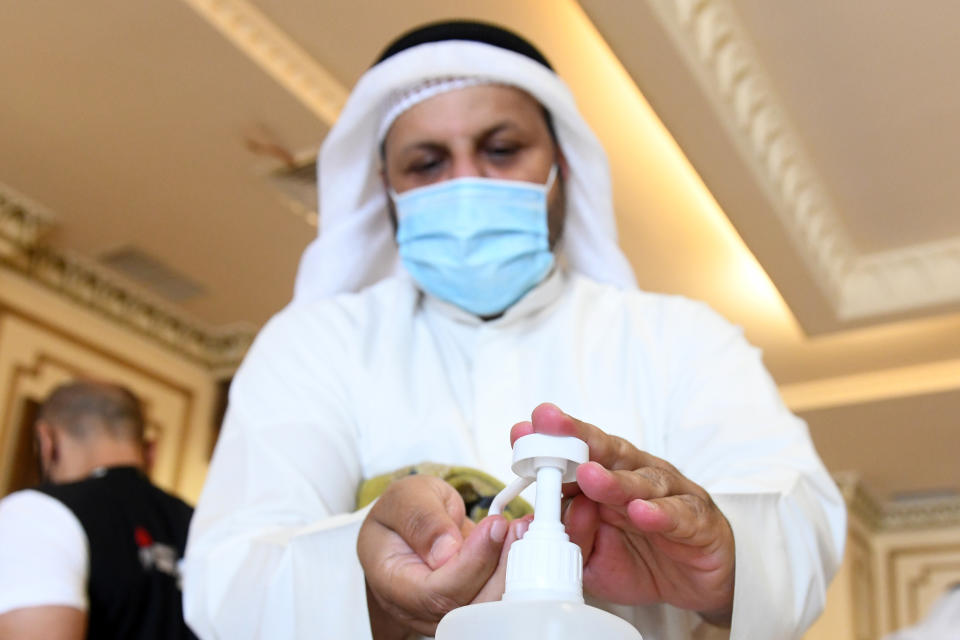Coronavirus: Global response ‘discriminates against BAME groups and immigrants’

Scientists have accused the global response to the coronavirus outbreak of discriminating against ethnic minorities and immigrants.
A team from University College London (UCL) point to evidence showing the risk of catching the infection and developing the respiratory disease COVID-19 is greater among minority groups.
A report previously revealed over a third (34%) of more than 4,800 patients critically-ill with the coronavirus in the UK identified as black, Asian or minority ethnic (BAME).
This is despite the 2011 census revealing only 14% of people in England and Wales are from ethnic minority backgrounds, the BBC reported.

‘COVID-19 does, in fact, discriminate’
Early on in the coronavirus outbreak, acts of racism were reported among people of Chinese or east Asian descent, the scientists wrote in the Journal of the Royal Society of Medicine.
Despite the infection spreading all over the world, Donald Trump has repeatedly referred to it as the “China virus”.
Brazil’s minister of education Abraham Weintraub even said the coronavirus is part of China’s plan for global domination.
The outbreak has been described as the “great equaliser”, with A-list celebrities like Tom Hanks testing positive and Boris Johnson requiring intensive care when he caught the infection.
“But like all illnesses, how society chooses to collectively manage COVID-19 does, in fact, discriminate,” wrote the UCL scientists.
“The risk of contracting [the coronavirus], the severity of the illness and the risk of poor health related to the policies and actions responding to the pandemic are all increased in black, Asian and minority ethnic and migrant groups.
“These amount to a form of structural violence, placing black, Asian and minority ethnic people and migrants at greater risk.”
Even once the outbreak has passed, the scientists worry the UK is heading for “one of the deepest recessions in a lifetime”.
“The poorest, with insecure employment, and most vulnerable in terms of health are then at risk for other stress-mediated health problems, especially mental health issues, that increase in times of recession,” they wrote.
Minority and marginalised groups ‘bear brunt of economic hardship’
The team are concerned “economic hardship is a fertile ground for populist movements to thrive”.
“Minority and marginalised groups bear the brunt of this,” they wrote.
“Migrants are unfairly targeted as bringing infections into a country, when it is mostly business and frequent flying travellers and tourists.”
The team referenced Trump’s comment that building the long-promised wall between Mexico and the US may help ward off further infections.
In addition, many migrant groups – particularly those without documents – are less likely to seek medical help or may do so later, when an illness has become more advanced, according to the scientists.
The UK government’s “hostile environment” policy, including barriers to accessing the NHS – like upfront charging and the sharing of data with the Home Office – has led to migrants avoiding healthcare, they added.
Going forward, the scientists are calling for “well-functioning health services that treat and support everyone”.
“Public health principles based around equity should be firmly at the core of the world’s response,” they wrote.
Why may BAME communities be more at risk of COVID-19?
One explanation could be that people from BAME backgrounds are more at risk of underlying health issues.
“Americans of African ancestry are much more likely to be overweight, obese or indeed morbidly obese than Caucasians”, Dr Dyan Sellayah, from the University of Reading, has previously said.
“This may be because as your infection progresses and the virus infects more and more cells, the demand for oxygen in the tissues is much higher for an obese individual than it is for a lean individual.
“Eventually the obese body becomes overwhelmed by the lack of oxygen getting to the major organs.”
Obesity may also trigger a “dysfunctional immune system”, causing it to release excessive amounts of immune-fighting proteins that lead to hyper-inflammation.
“It is likely the immune response to the virus is therefore ineffective in obese individuals, which may explain why people from BAME backgrounds, who have higher incidence of obesity, are vulnerable to the virus,” said Dr Sellayah.
Obesity also makes individuals more prone to underlying health conditions, like type 2 diabetes and high blood pressure.
While this may come down to lifestyle, research suggests certain ethnicities are more likely to develop different comorbidities.
“Irrespective of body weight status, some genetic mutations that predispose to heart disease have been shown to be more prevalent in African Americans than Caucasians,” said Dr Sellayah.
Although unrelated to the coronavirus, another example is prostate cancer, which is more common among men of African-Caribbean and African descent than Asian males.
Socio-economic factors may also make BAME communities more at risk.
“The demographic evidence is suggesting ethnic minorities live in larger family units, and potentially have professional and family lifestyles which make it harder to self-isolate or follow social distancing guidelines”, said Dr Sellayah.
For example, they may be more dependent on public transport, he added.
Dr Delan Devakumar, lead author of the UCL study, said: “Black, Asian and minority ethnic and migrant groups have a greater risk of contracting [the coronavirus] infection, as they are more likely to live in poor and overcrowded accommodation and do precarious forms of work or work in the gig economy.”
Data from the Office for National Statistics (ONS) revealed the most deprived areas of England had more than twice as many coronavirus-related deaths per 100,000 people as the most affluent regions between 1 March and 17 April.
“On average, deprived populations have a higher proportion of minority ethnic members,” Professor Noel McCarthy from Warwick Medical School previously said.
The ONS data was not broken down according to ethnicity.
Professor Gurch Randhawa, from the University of Bedfordshire, has argued the government “failed to appreciate the UK’s diverse population” when it imposed the lockdown.
“As part of the lockdown strategy the government advised that places of worship close”, he said.
“The BAME community is on average more religious and religious centres play a much greater role in alleviating food poverty.”
Non-urgent GP appointments have also largely switched to “video and phone consultations”.
“The patients least able to adapt to these new methods are likely to be poorer than average and disproportionately BAME,” said Professor Randhawa.
The UCL team wrote 44% of the NHS “medical workforce” is BAME, “on the frontline treating patients with limited protection”.

What is the coronavirus?
The coronavirus is one of seven strains of a virus class that are known to infect humans.
Others cause everything from the common cold to severe acute respiratory syndrome (Sars), which killed 774 people during its 2002/3 outbreak.
Since the coronavirus outbreak was identified at the end of 2019, more than 7 million cases have been confirmed worldwide, according to Johns Hopkins University.
Of these cases, over 3 million are known to have recovered.
Globally, the death toll has exceeded 411,000.
The coronavirus mainly spreads face to face via infected droplets in coughs and sneezes.
There is also evidence it can be transmitted in faeces and survive on surfaces.
Symptoms commonly include fever, cough and a loss of taste or smell.
The coronavirus has no “set” treatment, with most patients naturally fighting off the infection.
Those requiring hospitalisation are given “supportive care”, like ventilation, while their immune system gets to work.
Officials urge people ward off infection by washing their hands regularly and maintaining social distancing.
Coronavirus: what happened today
Click here to sign up to the latest news, advice and information with our daily Catch-up newsletter
Read more about COVID-19
How to get a coronavirus test if you have symptoms
How easing of lockdown rules affects you
In pictures: How UK school classrooms could look in new normal
How public transport could look after lockdown
How our public spaces will change in the future
Help and advice
Read the full list of official FAQs here
10 tips from the NHS to help deal with anxiety
What to do if you think you have symptoms



